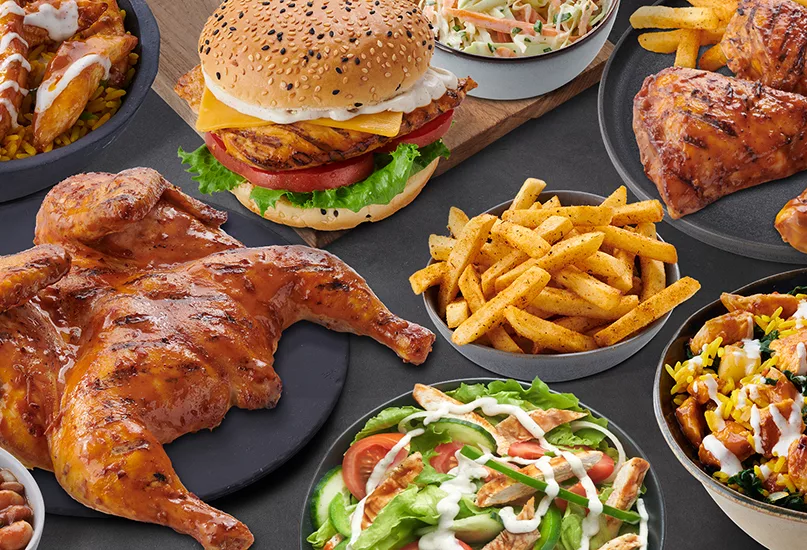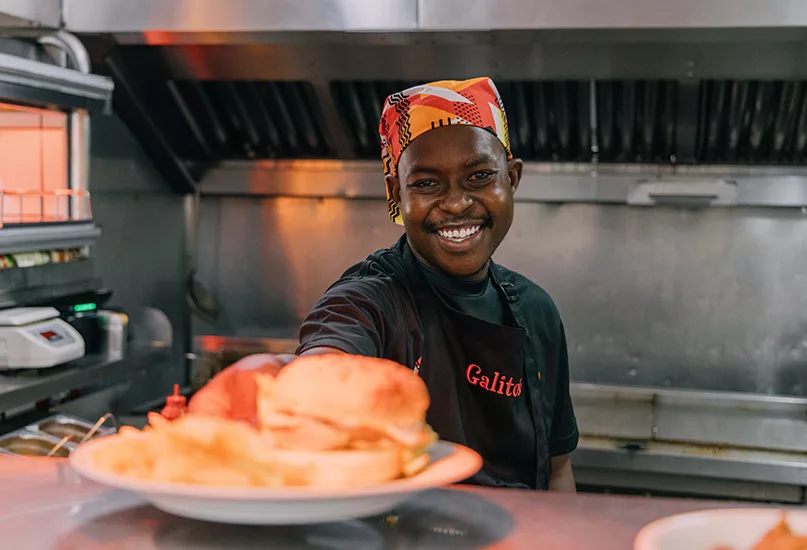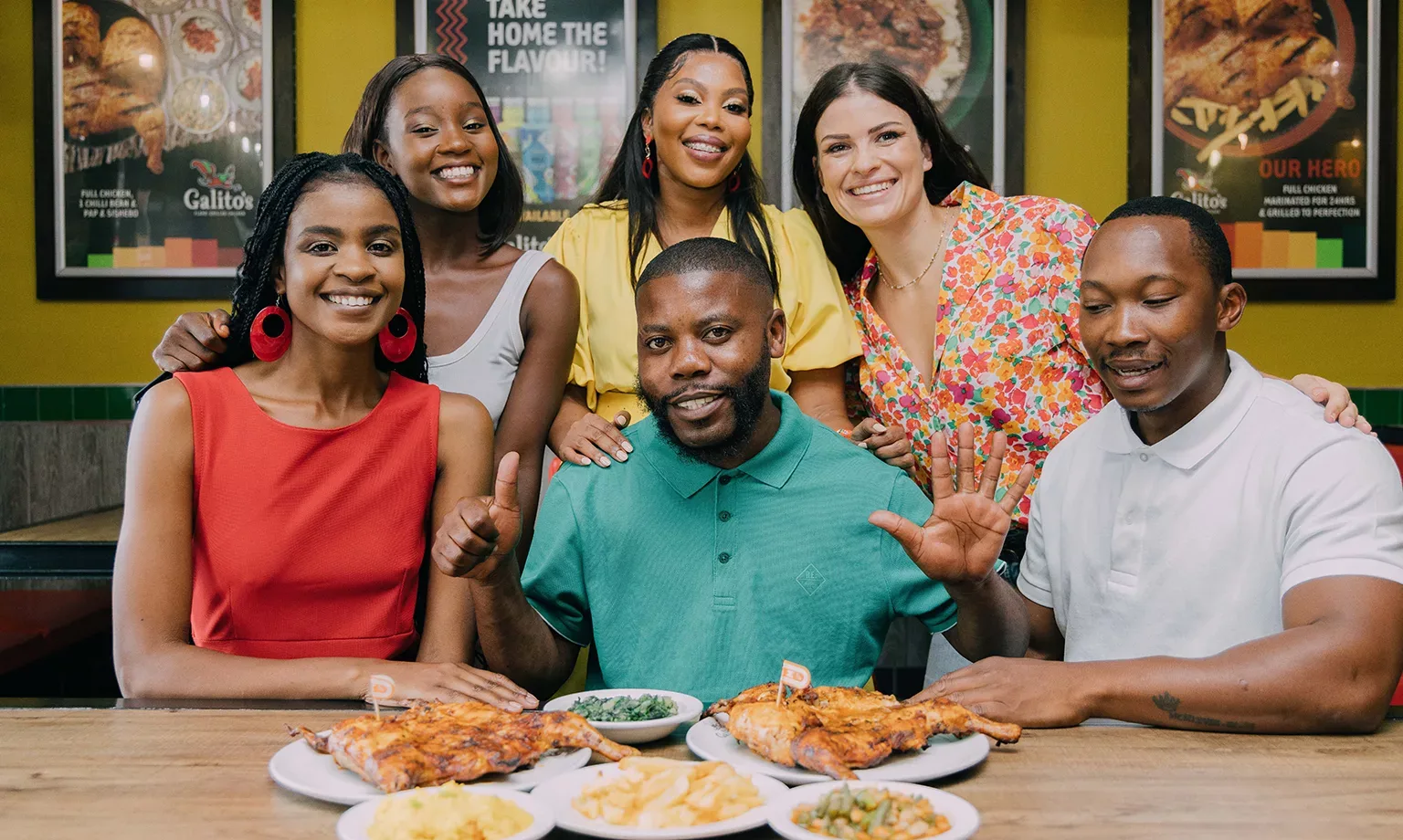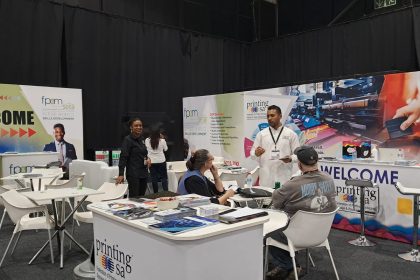South African chicken chain, Galito’s, has shown impressive growth and is taking a stand as one of the most popular flame-grilled chicken brands. Managing Director, Francois Rousseau, discusses flavour, franchises, and the future.
SERVING OPPORTUNITIES
Galito’s journey began almost three decades ago in Mpumalanga province’s capital city, Mbombela (formerly known as Nelspruit), when current CEO, Louis Germishuys, founded the brand. Since then, he has continued to steer the business forward with unwavering entrepreneurial spirit.
From humble beginnings perfecting sauces and marinades in a garage in the early 1990s to a small standalone chicken takeaway, today Galito’s is one of South Africa’s (SA) most popular quick service restaurants (QSR).
Since its inception, the company has consistently and continually expanded into SA while extending its international footprint. The franchise now includes 250 stores spanning 15 countries across four continents.
Galito’s serves flame-grilled piri-piri chicken in a variety of flavourful basting options. Its core offering is succulent chicken on the bone, accompanied by a variety of homestyle sides. The menu is rounded out with burgers and a selection of hearty chicken strip bowls to satisfy every craving. Galito’s delivers exceptional value with generous portion sizes, uncompromised quality, and flavour.
“Our major point of difference lies in our value offer and our wide range of unique bastings and sauces, which, unlike our competitors, we manufacture in-house at our production facility, with ingredients fresh from the farm,” introduces Francois Rousseau, Managing Director of Galito’s.
“Attention to detail is paramount. As an example, we use natural garlic, not just flavouring. Our sauces are crafted with meticulous care, resulting in flavours that simply can’t be beaten,” he adds.

UNIQUE BUSINESS MODEL
Alongside flavour being a competitive advantage, Galito’s’ franchises set it apart from other chicken restaurants.
“Another factor that differentiates us is how the Galito’s franchise model can operate successfully not only as traditional restaurants but also in a variety of channels such as food courts, kiosks, drive-throughs, and even counters within fuel station convenience stores,” elaborates Rousseau.
“Our ability to operate in various market segments makes for a good recipe for scalability.”
With 35 stores currently thriving in Kenya, it’s evident that the adaptable store model has been a major success, solidifying Galito’s as one of Africa’s leading grilled chicken brands.
“Our model continues to perform exceptionally well in Africa, where it’s been warmly embraced, and we foresee significant opportunities for further growth,” Rousseau informs us.
In terms of consumers, chicken is a widely loved dish in Africa. The younger generation, in particular, appreciates the additional choice of grilled chicken alongside fried chicken, as healthier lifestyles are facilitating demand for the same product cooked differently.
“Fried chicken is available in all African countries, but the grilling option has space in a healthier market, as people can eat grilled chicken more frequently. We tap into people’s preference for wholesome food – which also happens to be tasty – and Africa’s appetite for new brands,” Rousseau observes.
“Galito’s’ successful growth can be attributed to its ability to attract and retain quality franchisees and employees. There’s a shared feeling of being a part of something significant”
Francois Rousseau, Managing Director, Galito’s


WINNER WINNER CHICKEN DINNER
One of the exciting channels and models that Galito’s has embraced involves refurbished shipping containers, known as GaliPods. These stores, with fully operational kitchens, allow Galito’s to trade in smaller, less traditional spaces. Operating in this market gives the company an edge over its competitors as the units can be deployed anywhere from an urban car park to a rural environment.
“We have 40 GaliPods at the moment, with more on the way. These stores, with their unique ambience, have a vibrant, somewhat offbeat charm about them. They also have the potential to be transported to another location if the market conditions change,” notes Rousseau.
The GaliPods play an important role in the company’s rural expansion into SA and the continent, creating a community atmosphere and a source of opportunity.
“The innovative GaliPod model allows us to invest in areas other companies would find risky. Once we reach a certain revenue level, we have the option to consider transferring to a brick-and-mortar store. So the model de-risks the initial investment. It’s an interesting concept in the context of Africa’s extensive rural spaces.
“The GaliPods are not solely aimed at rural areas. In fact, the shopping centre’s parking lot near our headquarters in Johannesburg has been an absolute winner as a location for a GaliPod, with fantastic payback. The franchisee in question has actually just opened her third store. We are also proud that many of our franchisees are women, which is especially important for job creation in rural areas,” Rousseau expresses.

THE WINGS OF THE COMPANY
Galito’s’ triumph would not have been possible without its staff and franchisees. Looking inward to promote employees through the ranks to new positions has been a successful strategy for the company.
“The team responsible for skills training, which travels to every new country for store openings, has people who began their journey as grillers in the kitchen. Now, they traverse the globe, leading store launches in locations such as Malaysia, Dubai, and Namibia. It’s a good example for others that if you want to progress, the opportunities are there,” Rousseau points out.
“Galito’s successful growth can be attributed to its ability to attract and retain quality franchisees and employees. There’s a shared feeling of being a part of something significant.”
Despite what it has already achieved, Galito’s has ambitions for the future. The company plans to have 300 stores by 2025, a goal it is on track to achieve.
With the possibility of additional Galito’s franchises in the North American market, the company is considering new technology to improve its cooking processes.
“We have an exciting time ahead of us. I think North America, Africa, and the Middle East all hold a lot of opportunities and present exciting challenges. I can foresee good growth,” concludes Rousseau.































